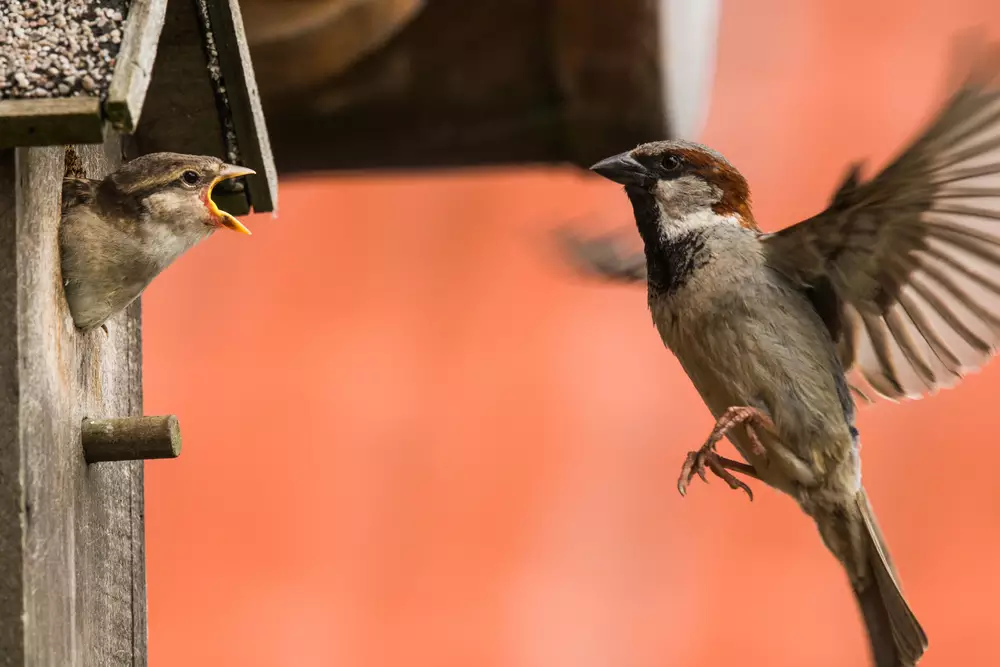The sparrow, a common sight in both urban and rural environments, is often recognized for its small size and distinctive song. While typically seen as benign, there have been inquiries regarding their behavior, specifically about the possibility of aggression towards humans. The answer to this is nuanced, as it involves an understanding of the sparrow’s habits, triggers for aggression, and the impact of their surrounding environment.
Indeed, sparrows, like any wild creature, have the capacity for aggression. However, such behavior towards humans is not commonplace and usually stems from specific circumstances, such as perceived threats to their nests. Delving deeper into this topic can help foster a more harmonious relationship between humans and these feathered neighbors.
By exploring the world of sparrows and their interactions with humans, we can better appreciate the complex dynamics that drive their behavior, ultimately allowing us to share our environment more peacefully with these lively birds.
What is a Sparrow?
Sparrows are small, plump birds belonging to the family Passeridae. They are recognizable by their brown-gray plumage, short tails, and stout beaks. Among the numerous species, the most well-known types are the House Sparrow and the American Tree Sparrow.
Although they are primarily seed-eaters, sparrows can also feed on insects and other small invertebrates, particularly during the breeding season. They are known for their adaptability and can thrive in a variety of environments, including urban and suburban areas where humans abound.
Sparrow Behavior: Are They Aggressive?
Sparrows are generally sociable creatures, often seen feeding or bathing in groups. However, they can display aggressive behavior, especially during the breeding season. Male sparrows, in particular, may engage in territorial disputes, involving aerial chases and physical skirmishes. This aggression, though, is typically directed at other sparrows or competing bird species.

What Triggers Sparrow Aggression?
Sparrow aggression is primarily triggered by competition and perceived threats. Understanding these triggers can provide insights into their behavior and help foster a more harmonious coexistence. The following are common triggers of sparrow aggression:
Breeding Season Competition
During the breeding season, male sparrows become more territorial as they compete for mates and nesting sites. This competition can escalate into aggressive displays, such as vocalizations, physical confrontations, and chasing other birds away.
Nest Protection
Sparrows are protective of their nests and young ones. If they perceive a threat to their nests, such as a potential predator or a human approaching too closely, they may exhibit aggressive behavior as a defensive response. This aggression aims to deter the perceived threat and safeguard their offspring.
Resource Competition
Sparrows, being seed-eaters, may exhibit aggression when competing for limited food sources, especially in environments with scarce food availability. This aggression is primarily directed at other birds and is a means to secure essential resources for survival.
Understanding these triggers can help humans navigate sparrow behavior more effectively and minimize potential conflicts.
Are Sparrows Aggressive Towards Humans?
Instances of sparrows being aggressive towards humans are relatively rare. However, there have been documented cases where sparrows have exhibited aggression towards humans, especially if they perceive a threat. It is important to note that such instances are the exception rather than the norm.
Sparrows are typically uninterested in human interaction and prefer to go about their daily activities without conflict. However, if a sparrow perceives a human as a threat to their nest, eggs, or fledglings, they may resort to aggressive behaviors as a protective measure. These behaviors can include dive-bombing, vocalizing loudly, or exhibiting aggressive postures to intimidate the perceived intruder.
It is essential to understand that these behaviors are not driven by malice but rather a natural instinct to protect their offspring. By respecting their space and being mindful of their nesting areas, conflicts between sparrows and humans can be minimized.

How to Respond to Sparrow Aggression
Encountering an aggressive sparrow can be disconcerting, but it is crucial to handle the situation with care and empathy. Here are some tips on how to respond to sparrow aggression:
Remain Calm
Maintain a calm demeanor when faced with an aggressive sparrow. Abrupt or aggressive movements may escalate the situation further.
Assess the Situation
Evaluate the context and determine if there is a potential threat to the sparrow’s nest or young ones. If you find yourself near a nest, consider moving away from the area to reduce the sparrow’s perceived threat.
Create Distance
If a sparrow is behaving aggressively towards you, it is advisable to create distance by calmly and slowly walking away. Avoid making sudden movements or swatting at the bird, as this may further provoke it.
Implement Bird-Friendly Deterrents
To discourage sparrows from nesting in unwanted areas or exhibiting aggressive behavior, consider implementing bird-friendly deterrents. These can include using reflective surfaces, such as strips of aluminum foil or wind chimes, near potential nesting sites to create visual disturbances that sparrows find unappealing.
Seek Professional Help if Necessary
In rare cases where sparrow aggression becomes persistent or poses a significant threat, it may be necessary to seek assistance from local wildlife authorities or professional pest control services. These experts can provide guidance and implement appropriate measures to address the situation effectively.
By responding to sparrow aggression in a calm and respectful manner, it is possible to mitigate conflicts and promote peaceful coexistence.
Sparrows and Urban Environments: A Tense Relationship?
As sparrows adapt to urban environments, encounters with humans have become more frequent. While most of these interactions are peaceful, tensions can arise, particularly during the nesting season. Urban areas often provide an abundant food supply and nesting opportunities for sparrows, which can result in increased territorial behavior and perceived threats to their nests.
Additionally, urban environments may introduce new challenges, such as noise pollution, habitat destruction, and limited green spaces, which can contribute to the overall stress levels of sparrows. In such circumstances, the likelihood of aggressive behavior may be heightened.
Understanding the pressures faced by sparrows in urban environments can foster empathy and guide efforts to create bird-friendly urban spaces. By preserving green areas, providing nesting opportunities, and minimizing potential disturbances, we can help mitigate sparrow aggression and ensure their continued presence in our cities.
Sparrows in Popular Culture and Human Perception
Sparrows have held a special place in human culture throughout history. They have been featured in literature, artwork, and various cultural references, often symbolizing freedom, joy, and simplicity. These positive depictions have influenced human perception and fostered a sense of admiration for these tiny birds.
By appreciating sparrows as an integral part of our natural surroundings and recognizing their positive attributes, we can develop a deeper understanding and respect for their behavior. This, in turn, can contribute to more harmonious interactions between humans and sparrows.
Frequently Asked Questions
Why do sparrows chirp loudly at humans?
Sparrows may chirp loudly at humans if they perceive them as a threat or as intruders near their nests. The loud chirping is a vocal warning and an attempt to intimidate the perceived threat.
Can a sparrow harm a human?
Sparrows are small birds and pose no significant physical harm to humans. While they may exhibit aggressive behaviors, such as dive-bombing, these are primarily meant to intimidate and deter potential threats.
What should I do if a sparrow is acting aggressively towards me?
If a sparrow is acting aggressively towards you, remain calm and slowly create distance between yourself and the bird. Avoid making sudden movements or swatting at the bird, as this may escalate the aggression. It is essential to respect their space and not to provoke further confrontations.
Conclusion
While sparrows have the capacity for aggression, instances of sparrows being aggressive towards humans are relatively rare. Understanding their behavior, triggers for aggression, and the impact of their environment can help foster peaceful coexistence.
By respecting their space, responding calmly to aggressive behavior, and implementing bird-friendly practices, we can share our surroundings harmoniously with these lively and charming birds. Appreciating the natural beauty of sparrows and recognizing their positive contributions can enrich our lives and deepen our connection with the avian world.